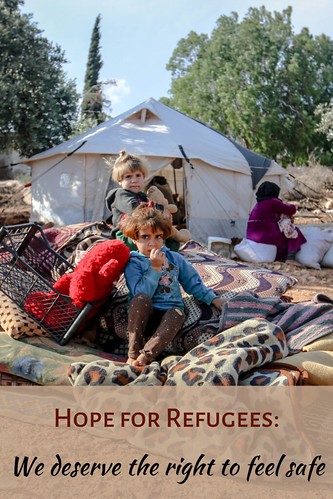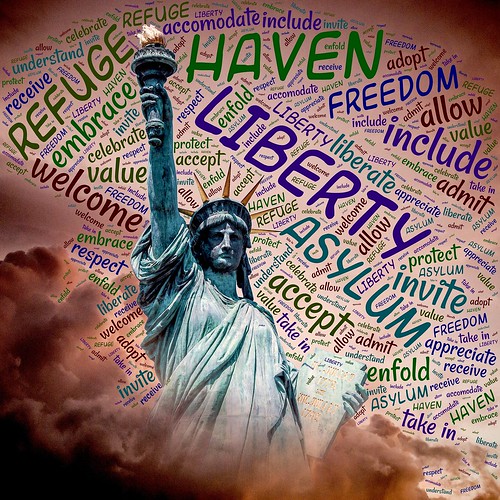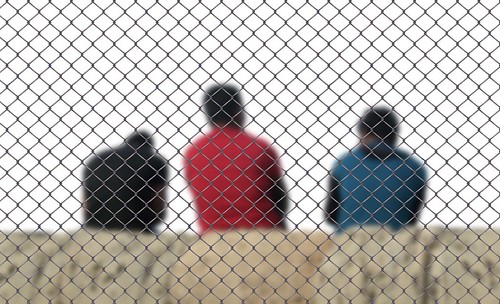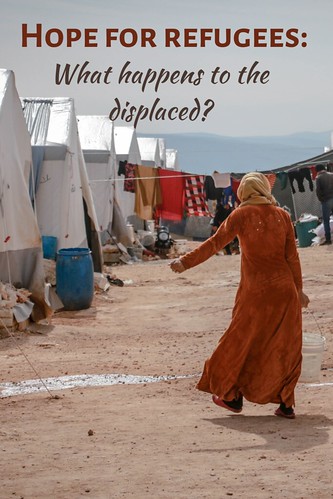Hope for refugees: We deserve the right to feel safe
During one of my classes at the University of Stirling, we were asked what our decision would be if we had the power to grant asylum to a woman seeking asylum in our country on the grounds of consistent domestic violence from her husband. Being a woman and coming from a background where multiple women have died as a result of domestic violence, either directly or indirectly, I naturally want to offer her respite, but I also know that the answer depends on the substantive laws of both my country and her home country. If the two countries are signatories to the 1951 United Nations Convention Relating to the Status of Refugees and its 1967 Protocol Relating to the Status of Refugees, then the next step is to determine the conditions stipulated in the said treaties.

Definition of refugee
The international definition of a refugee is contained in the 1951 United Nations Convention Relating to the Status of Refugees and its 1967 Protocol Relating to the Status of Refugees as an individual who, owing to a well-founded fear of being persecuted for reasons of race, religion, nationality, membership of a particular social group, or political opinion, is outside the country of his nationality, and is unable or unwilling to avail himself of the protection of that country.
Apart from being taught not to make decisions based on my emotions, especially when it involves the lives of others, I was happy to learn that a woman can indeed be declared a refugee on the grounds of domestic violence if she establishes the fact that she has reported the abuse multiple times to the authorities in her country, but they always reject her claim, citing that it was well within her husband’s right. She would also have to show that her husband, being an influential man in the county, has the police at his beck and call. It is also important to state that since the term persecution is not defined, and domestic violence is not outrightly stated as a reason in the document, each case will be treated differently according to the interpreting country.
In this article, I will discuss:
• the definition of refugee
• how it is generally interpreted and applied
• why the definition needs to be broadened to fit today’s realities
I shall also be discussing some of the reasons individuals may seek asylum, and how they are received, as opposed to the mass immigration movement that is a result of a conflict.

How persons seeking asylum are treated
It would seem that as a general rule, most countries are opposed to granting asylum to people. One of the most common exceptions to this rule would be granting asylum based on humanitarian reasons and serving as a refuge against wars and conflict. What this means is that countries would easily accept asylum seekers when they are fleeing to escape a globally recognized war or civil conflict, such as the conflicts in Syria and Ukraine, but are reluctant to grant asylum easily to individuals that claim special or particular persecution from their country.
Due to this reason, persons seeking asylum are sometimes treated in a horrific manner, discriminated against, and sometimes detained. Some counties hold asylum seekers in detention centers for indefinite periods. I recently read this story of an 11-year-old girl detained in the UK immigration detention center for over 750 days before being released—and even now, many years later, her status remains undeclared.

Some countries treat asylum seekers that flee their home countries on the ground of the homosexual ban in their country. For proof of their sexuality, asylum seekers are asked rather intrusive and highly inappropriate questions; some are even asked to produce videos of themselves in a sexual act with their partners. These forms of investigations are demeaning and embarrassing and discourage people from seeking asylum.
If we keep silent on some of the inhumane actions and policies by our governments on the grounds of protecting our borders from terrorists or our economy, we may get to a point whereby there would be a worldwide ban on refugees, similar to Trump’s administration. Thus, what hope do females in Iran fighting and dying for the right to have a voice, or do the LGBTQ communities in some countries that have criminalized same-sex unions have to live freely and in dignity?
Do they, by being themselves, have relinquished their rights against torture, being humiliated and assaulted, and even murdered?
Taking away the option of seeking refuge in other countries, we may as well have signed a death warrant of thousands of people that genuinely need international protection. Although women who suffer domestic violence are abused by their husbands or persons from their household and not the state or a state’s institution, the state have proved over time that they cannot and would not protect these women. The same goes for the places where there is evidence of the mob freely lynching and clubbing homosexuals, with the police often looking the other way.
If a state refuses to protect the rights of its citizens, the said citizen has the right to seek refuge in another state.
Every human being deserves and has the right to be safe in his resident country; this is where the basis of seeking refuge in another country arises.
We often forget that seeking asylum is our human right.
Article 14(1) of the Universal Declaration of Human Rights 1948 provides
“Everyone has the right to seek and to enjoy in other countries asylum from persecution.”
Article 28 of UDHR also reads
“Everyone is entitled to a social and international order in which the rights and freedoms set forth in this Declaration can be fully realized.”

Expanding the definition
Some regional bodies, having realized that the conventional definition of refugees is not inclusive of their realities, expanded the definition. One such organization is the African Union, which included “every person who, owing to external aggression, occupation, foreign domination or events seriously disturbing public order in either part or the whole of his country of origin or nationality, is compelled to leave his place of habitual residence in order to seek refuge in another place outside his country of origin or nationality.”
By adopting the 1984 Cartagena Declaration, a group of Latin American countries also adopted the definition of refugees to include massive human rights violations to the definition.

The people that are excluded
Applying the legal definition of the term refugee, anyone seeking asylum on the grounds of displacement caused by a natural disaster, climate change, or civil uprising would likely be refused. Anyone also applying for economic reasons, such as famine or extreme poverty, would also likely be turned back…notwithstanding that these groups of people are also in need of international support and protection.
One of the major challenges this exclusion creates is that faced with the knowledge that an asylum claim will be rejected; this group of people resorts to entering another country through illegal means—and oftentimes using the same routes as smugglers and those other illegal people. If caught, they are treated as illegal migrants, and their right to asylum, which they could have claimed, will then be denied.
Countries are reminded that while they are supposed to take proactive measures in protecting their borders against terrorists, drugs, or human traffickers, they should endeavor to distinguish those needing international protection and strive to offer such protection in furtherance of their international obligations.

Read more in this series:
Sandra Okafor is the Refugee and Forced Migrants human rights editor at Wandering Educators. She is currently studying a Master's in Human Rights and Diplomacy at the University of Stirling. She is motivated by the desire to impact knowledge and to empower others in creating a better world.






















